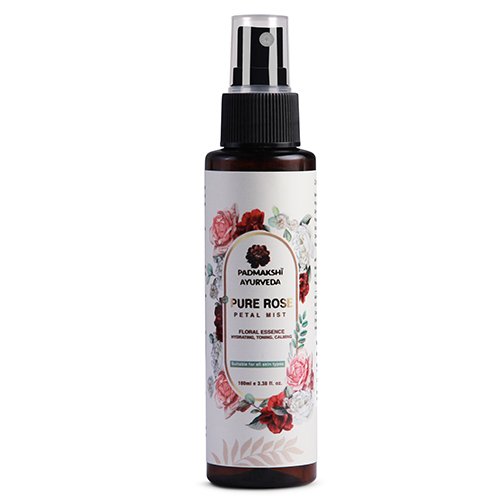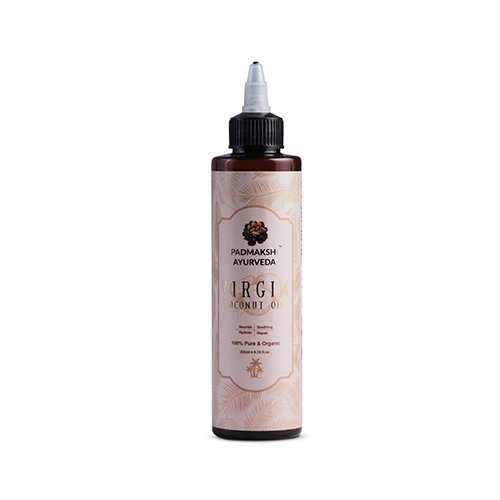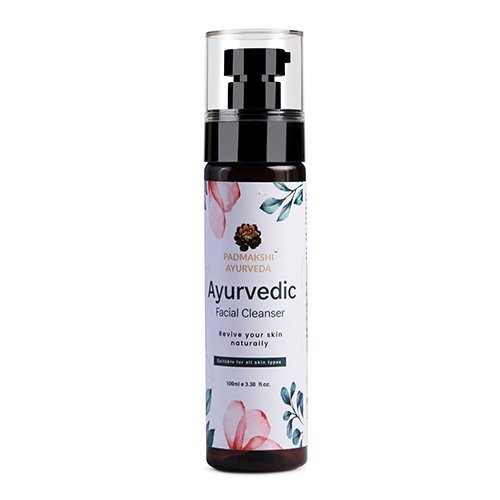The association between Ayurveda, anti-aging, and skincare is gaining importance in the beauty, health, and wellness sector. The contemporary concept of wellness doesn’t only mean beauty, it also adds up health, fitness, and certain beauty treatments. Ayurvedic herbs and cosmetics date back to the Indus Valley civilization and have been used in human society from ancient time. It is now gaining importance in beautification and to cure skin ailments. In the last 30-40 years, the use of cosmetics has increased exponentially among female and male population. These products include anti-aging creams, serums, and moisturizers consisting of biologically active ingredients that possess drug-like benefits.
The traditional science of Ayurveda has gained great interest of researchers as the use of herbs for beautification increases day by day. Ayurvedic herbs improve skin texture, complexion, and elasticity, reduce wrinkles, and offer anti-aging effects. Herbal cosmetic product not only possesses cosmetic benefits but also acts nourish the skin by providing nutrients, thus restricting early aging effect. The natural materials such as; curcumin, sandalwood, saffron, amla, manjistha, chamomile, liquorice and aloe vera offers beneficial effects towards beauty and aging. Herbs present in these plant products such as; essential oils, proteins and vitamins are considered beneficial for skin wellness.
Ayurvedic cosmetics are very much known for their safe, holistic action. Based on the vast and established knowledge of Ayurveda, herbal extracts, fruit extracts and essential oils, new innovations in medicine, food supplements and personal care is now being carried out. Ranges of Ayurvedic cosmetics are available for ageless skin, tonifying it, smoothing its imperfections, and increasing its moisture level, thus restoring a radiant and healthy look. Such preparations actively protect the skin and prevent premature aging.
Herbal cosmeceuticals are rich in nutrients like vitamin C which is found in citrus fruits which acts as an antioxidant, zinc present in colourful fruits for lustrous skin, unsaturated fatty acids found in dry fruits which is essential for skin hydration etc.
Ayurvedic Concept of Beauty
According to Ayurveda, healthy skin is a result of overall health condition of individuals and prescribes numerous skin care treatment that needs to be pursued at every stage of life. It mentions the following factors for the maintenance of beauty:
- Proper functioning of Kapha, offering moisturizing balance.
- Proper functioning of Pitta, associated with balance between chemical and hormonal activities of the skin.
- Proper functioning of Vata, essential for effective circulation of nutrients to the deeper layers of skin.
- Rasa Dhatu supports body tissues and maintain elasticity of the skin.
- Rakta helps to remove toxins from the skin, thus offer detoxifying benefits.
- Mamsa provides steadfastness to the skin and improves skin texture.
The ayurvedic approach towards the maintenance of beauty and complexion offers balancing of tridoshic components (Vata, Pitta and Kapha) and dhatus (Rasa, Rakta and Mamsa).
Full Body Skincare

Ayurveda mentions three steps to a beautiful and healthy skin: cleanse, nourish, and moisturize. Most people use soap to cleanse the skin but it dries out the skin and alter its pH balance, causing it to become more alkaline. As a result, we reach for synthetic moisturizing creams which generally are too dense on the molecular level to absorb in the tissue adequately. Instead, ayurveda suggests using ubtans (pastes made from herbs, flours, and legumes) to cleanse and exfoliate the skin, and then nourishing and moisturizing with organic unrefined oils.
1. To Cleanse
Prepare an ubtan by mixing equal parts of chickpea flour (a gentle natural exfoliant) and dry milk powder in a jar. Sprinkle 2 teaspoons into the palm of your hand, add water to make a thin paste, and scrub lightly over wet skin in the shower. Rinse off and pat dry.
2. To Nourish & Moisturize
Make a homemade body oil by combining 1 part of almond oil with 10 drops of essential oil in appropriation to your prakriti: for dry “vata” skin, use sweet orange or geranium; for sensitive “pitta” skin, jasmine or sandalwood; for oily “kapha” skin, lavender or bergamot.
Warming your bottle of oil in hot water for a few minutes, give yourself an abhyanga (self-massage with oil). Pour some oil on your palm and massage your scalp, the tops and bottoms of your feet, and the rest of your body, including your abdomen and spine. Use long repetitive strokes along your limbs and circular strokes on your joints and scalp.
According to the Charaka Samhita, abhyanga appease the doshas, enhances the complexion and the shine of the skin, tones muscles, and acts as a natural moisturizer.
Anti-Aging Concepts in Ayurveda

For Vata skin to stay youthful, skin care products that can replenish and rehydrate the skin should be used, otherwise it may be susceptible to wrinkles and premature aging. Self-massage with a warm oil and all natural moisturizers may help. For Pitta skin, good sunscreens for protection from the sun, and good facial skin oils should be used holistically. Tanning treatments and therapies that expose delicate inner sensitive skin for extended periods of time to steam/heat should be avoided.
For Kapha skin, a daily warm oil massage and cleansing of skin with gentle exfoliator should be performed.
-
Product on sale
 Pure Rose Petal MistOriginal price was: ₹845.00.₹575.00Current price is: ₹575.00.
Pure Rose Petal MistOriginal price was: ₹845.00.₹575.00Current price is: ₹575.00. -
Product on sale
 Virgin Coconut OilOriginal price was: ₹995.00.₹685.00Current price is: ₹685.00.
Virgin Coconut OilOriginal price was: ₹995.00.₹685.00Current price is: ₹685.00. -
 Ayurvedic Facial Cleanser₹695.00
Ayurvedic Facial Cleanser₹695.00
Some Common Herbs and Their Cosmetic Benefits:
1. Aloe Vera
- It offers a soothing effect on sunburn and prevents wrinkles, skin irritations, and scratches.
- Aloe gel stimulates skin circulation and help to remove dead skin cells.
- Reduces wrinkles due to its amazing moisturizing property.
2. Turmeric
- It offers antioxidant and antiseptic properties.
- Provide nourishment to epidermis of the skin.
- Protects skin against infections since it is enriched with antiphlogistic and bacteriostatic properties.
- It helps to heal wounds and burns.
3. Sandalwood
- It is used as an anti-ageing product as it reduces the appearance of wrinkles, scars, and the darkening of the skin.
- Sandalwood oil can be applied on the skin to help with the management of eczema due to its anti-inflammatory action.
- When applied topically, it has been proven to help with Psoriasis, a skin condition in which the patient develops itchy, scaly, and red patches.
4. Pomegranate
- Pomegranate seed oil increases the blood circulation and flow of nutrients, thus providing the skin with hydration and moisture.
- Pomegranate extract offers antioxidant and antiviral properties thus preventing skin infections.
- Pomegranate peel enhances dermal cells regeneration and epidermal regeneration.
- It also offers photo protective effects thus preventing sun damage to some extent.
Conclusion:
Ayurveda offers vast amounts of information on principles of skin care and anti-aging herbs, aiding the exploration of possibilities of developing new age cosmetics with natural ingredients for topical applications. The future of functional cosmetics that offer multifunctional benefits in the area of anti-oxidant cellular protection and skin health with anti-inflammatory properties is bright.

Thank you for your sharing. I am worried that I lack creative ideas. It is your article that makes me full of hope. Thank you. But, I have a question, can you help me?
Thanks for sharing. I read many of your blog posts, cool, your blog is very good.
Your article helped me a lot, is there any more related content? Thanks!
I don’t think the title of your article matches the content lol. Just kidding, mainly because I had some doubts after reading the article.
Can you be more specific about the content of your article? After reading it, I still have some doubts. Hope you can help me.